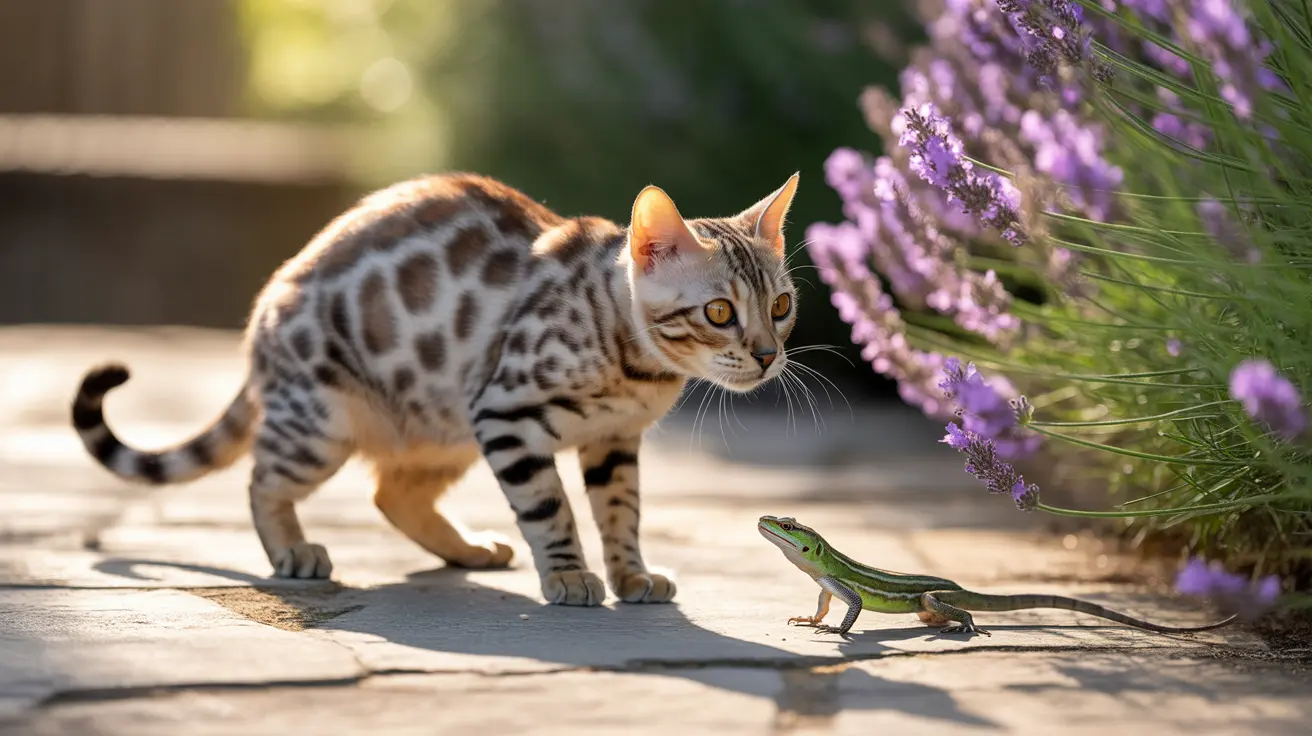If you're a cat owner, you might have witnessed your feline friend stalking or even catching lizards in your backyard. Cats are natural hunters, and their predatory instincts often lead them to pursue these small reptiles. But should you be concerned when your cat eats lizards? Let's explore the facts, risks, and necessary precautions.
Understanding your cat's hunting behavior and the potential dangers of lizard consumption is crucial for maintaining their health and safety. While most lizard encounters aren't immediately life-threatening, there are several important health considerations every cat owner should know about.
Natural Hunting Instincts: Why Cats Chase Lizards
Cats are hardwired hunters, and their attraction to lizards stems from deep-rooted predatory instincts. The quick, darting movements of lizards trigger a cat's natural chase response, making these reptiles particularly enticing prey. Even well-fed house cats will pursue lizards, as hunting behavior is independent of hunger.
Health Risks Associated with Lizard Consumption
Parasitic Infections
One of the most serious concerns when cats eat lizards is the risk of liver fluke infection, particularly from the parasite Platynosomum fastosum. This condition is especially prevalent in tropical and subtropical regions, potentially causing severe liver damage if left untreated.
Bacterial Infections
Raw lizard meat can harbor dangerous bacteria, including Salmonella. Cats who consume lizards may develop:
- Severe gastrointestinal issues
- Fever and lethargy
- Bloody diarrhea
- Dehydration
Toxic Exposure
While most common house lizards aren't poisonous, some species can be toxic to cats. Ingesting these lizards might lead to:
- Excessive drooling
- Neurological symptoms
- Respiratory distress
- Severe allergic reactions
Prevention and Safety Measures
To protect your cat from the risks associated with eating lizards, consider implementing these preventive strategies:
- Keep cats indoors or create a secured outdoor enclosure
- Provide engaging indoor activities to satisfy hunting instincts
- Install protective screens on windows and doors
- Maintain regular veterinary check-ups, especially if your cat has outdoor access
When to Seek Veterinary Care
Monitor your cat closely if you know they've eaten a lizard. Seek immediate veterinary attention if you notice:
- Persistent vomiting or diarrhea
- Unusual lethargy or depression
- Yellowing of the eyes or skin (jaundice)
- Loss of appetite
- Abdominal swelling
Impact on Local Ecosystems
Beyond health concerns, cat predation on lizards can significantly impact local wildlife populations. Responsible pet ownership includes considering the environmental effects of our cats' hunting behaviors and taking steps to minimize their impact on native species.
Frequently Asked Questions
Why do cats hunt and eat lizards even if they are not hungry?
Cats hunt lizards due to their natural predatory instincts, not hunger. The movement of lizards triggers their hunting response, and this behavior is separate from their need for food.
Are lizards safe for cats to eat, or can they be poisonous?
While most common house lizards aren't poisonous, eating lizards poses health risks including parasitic infections, bacterial illness, and potential toxicity from certain species. It's best to prevent your cat from eating lizards.
What health risks can cats face from eating lizards, such as liver fluke infections?
Cats can contract liver flukes, bacterial infections like Salmonella, and various parasites from eating lizards. Liver fluke infection can cause serious liver damage and requires veterinary treatment.
How can I prevent my outdoor cat from catching and eating lizards?
Keep cats indoors, create enclosed outdoor spaces (catios), provide interactive toys for mental stimulation, and ensure proper screening on windows and doors to prevent lizard access.
What symptoms should I watch for if my cat has eaten a lizard and might be sick?
Watch for vomiting, diarrhea, lethargy, jaundice, loss of appetite, and abdominal swelling. If you notice any of these symptoms, contact your veterinarian immediately.






